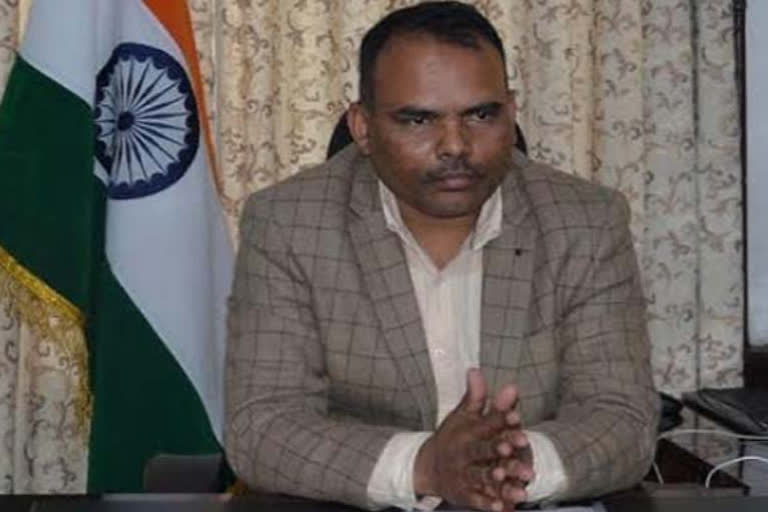Srinagar (Jammu and Kashmir): Following the downgrading of Jammu and Kashmir from a state into a Union Territory, the Narendra Modi-led BJP government has implemented Panchayati Raj Act's 73rd amendment in the region. By virtue of this amendment, 280 District Development Councils (DDCs) were formed in 20 districts of the erstwhile state. From November 28, the maiden eight-phase DDC elections are going to be held in Jammu and Kashmir.
In an exclusive interview with ETV Bharat, Divisional Commissioner Kashmir Pandurang Kondbarao Pole explained in detail the election process.
Since the abrogation of Article 370 and 35A, it is for the first time that any election is being held in the region and all the mainstream political parties of Jammu and Kashmir have fielded their candidates. The National Conference, PDP, People's Movement, People's Conference and four other political parties have formed the People's Alliance for Gupkar Declaration and fielded united candidates in these elections and are participating to keep the BJP away.
Amendment of Panchayat Raj Act
The amendment to the law, affected by the Ministry of Home Affairs on October 16, will lead to the establishment of District Development Councils (DDC) whose members will be directly elected by voters. The amendments have been carried out by way of Union Territory of Jammu and Kashmir Reorganization (Adaptation of State Laws) Fourth Order, 2020 issued by Union Home Secretary Ajay Kumar Bhalla in exercise of powers conferred by Section 96 of the J&K Reorganization Act, 2019.
Read:Roshni Act: Farooq's sister, prominent hoteliers in second list issued by JK admin
Before abrogation of Article 370, the powers to amend the laws in Jammu and Kashmir rested with the Assembly. However, with the implementation of Jammu and Kashmir Reorganisation Act (2019), the powers are vested with the Ministry of Home Affairs.
The 73rd amendment to the Jammu and Kashmir Panchayat Raj Act, 1989 was a long-pending demand of the panchayat members associations here, but none of the elected governments amended the Act.
The amended Act has kept reservation for the Scheduled Castes and Scheduled Tribes and it states that not less than one-third of the total number of seats reserved shall be kept for women belonging to the Scheduled Castes or, as the case may be, the Scheduled Tribes.
Moreover, one-third (including the number of seats reserved for women belonging to the SCs and STs) of the total number of seats to be filled by direct election in every DDC shall be reserved for women.
